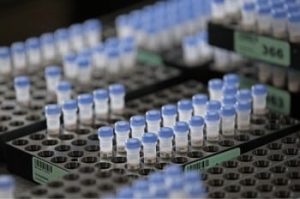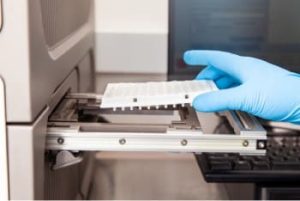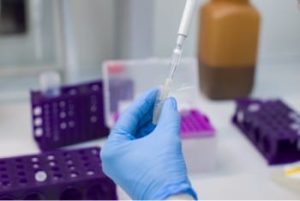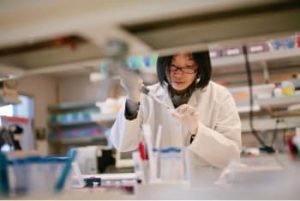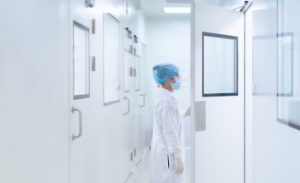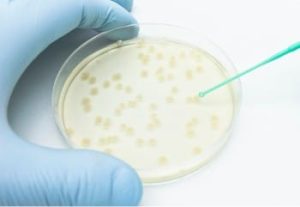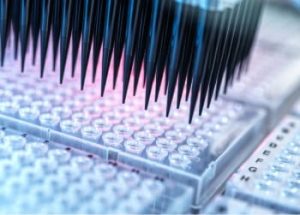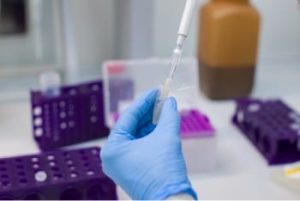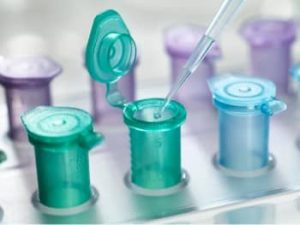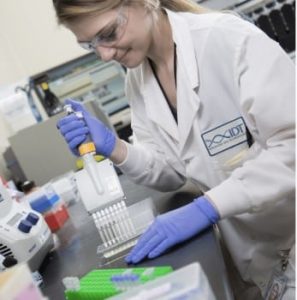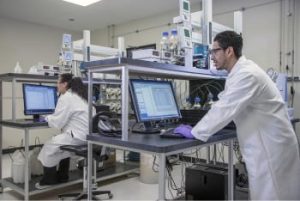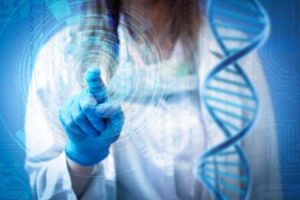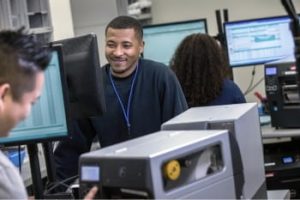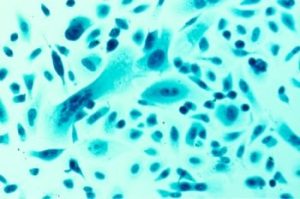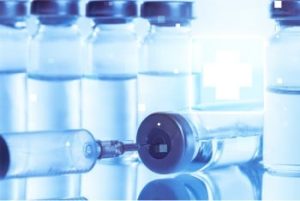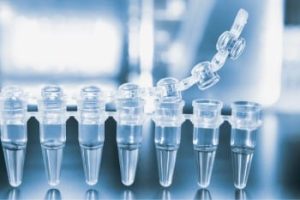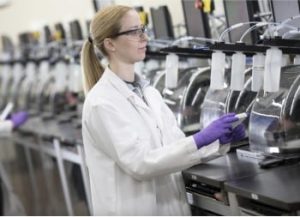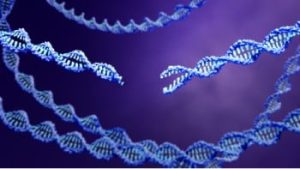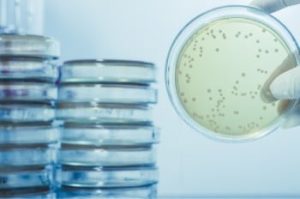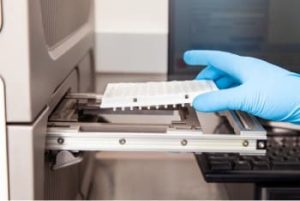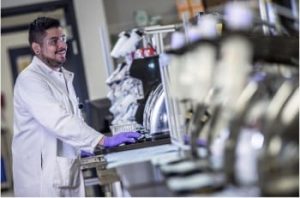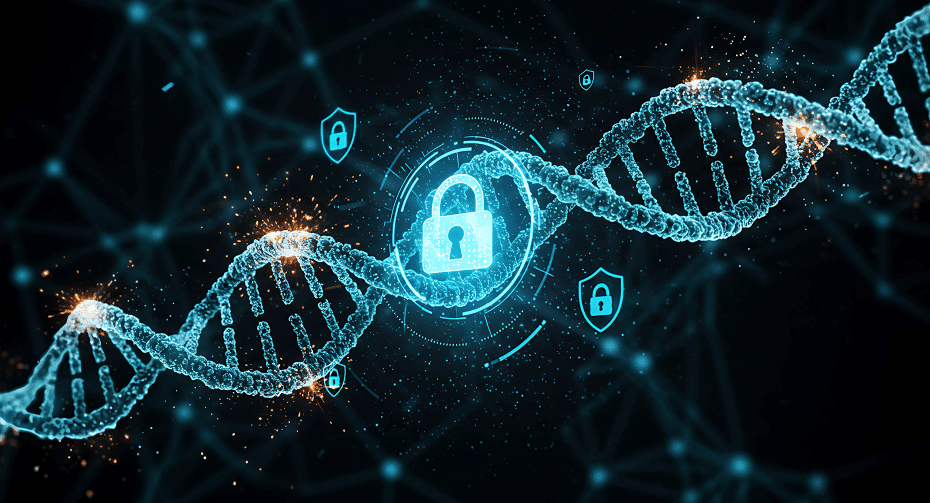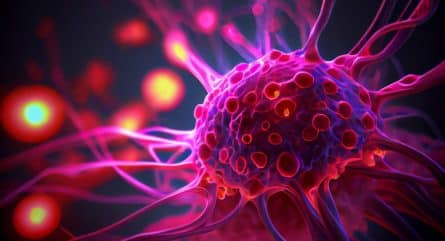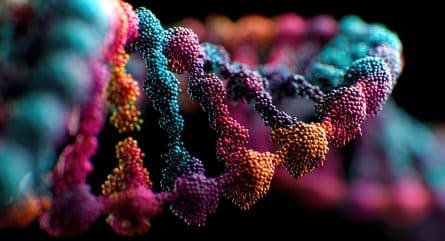The Takeaway: Biosecurity is a hot topic in the nucleic acid industry, and IDT plays a leading role in ensuring appropriate screening for our products and our customers. Recent federal legislation has many researchers wondering how their work could be impacted. Read more about what biosecurity is, why it matters, and the role IDT plays in giving scientists peace of mind that their work can go on unimpeded.
What is biosecurity?
Biosecurity is a set of preventive measures that are designed to reduce the risk of misuse of synthetic nucleic acid sequences of concern related to infectious diseases, pests, and other harmful biological agents. In the oligo manufacturing industry, biosecurity ensures measures that prevent the misuse of dangerous biological materials and ensures that those agents do not escape into the environment or fall into the wrong hands.
Key elements of biosecurity include:
- Quarantine protocols
- Access controls
- Monitoring and surveillance
- And more
Why is biosecurity important?
Biosecurity is important because it helps protect public health, agriculture, ecosystems, and entire economies from the risks posed by misuse of synthetic nucleic acid sequences of concern related to infectious diseases, pests, and harmful biological agents. Strong biosecurity measures can:
- Prevent disease outbreaks
- Protect public health
- Prevent bioterrorism and biological warfare
- Safeguard food supplies
- Protect biodiversity and ecosystems
- Promote and protect ethical responsibility and scientific integrity
How does pending U.S. federal legislation impact biosecurity?
The BIOSECURE Act (H.R. 7085), introduced in Congress in early 2024, is a proposed law that would restrict U.S. federal agencies from contracting with some biotech companies that have connections to People’s Republic of China military companies. In essence, the bill would prevent taxpayer money from funding the biotech efforts of what some consider to be foreign adversaries and prevent American genomic data from being sent to the Chinese government.
This bill also prohibits entities that receive federal funds from using biotechnology that is from a company associated with a “foreign adversary.”
Specifically, federal agencies and groups that receive federal funds may not procure or use any biotech equipment or service that is from a biotechnology company of concern and may not contract with any entities that do so. The bill defines “biotechnology company of concern” as an entity under the control of a foreign adversary and that poses a risk to national security based on its research or multiomic data collection.
As currently envisioned, the law would work like this: Federal agencies would develop a list of prohibited companies, including several listed specifically in the bill, and also solicit and consider restriction waivers. Agencies must then also report on the national security risks posed by multiomic data collection by foreign adversaries in connection with biotechnology equipment or services, and biotechnology companies that have those data.
What are the potential issues at hand and how does it impact the research community?
The BIOSECURE Act, which is attempting to enhance the security of pharmaceutical and life science manufacturing in the U.S., could significantly impact the research community by restricting access to biotech services and equipment from the targeted foreign companies. In some research settings, consistency is critical, and researchers must use the same products throughout every step of their work to ensure efficacy, safety, and confidence in the results.
What could happen if a team had to change the products they use because their supplier is deemed to have connections to an adversary? In many cases, they would have to start over from the beginning, which would hinder research progress, increase costs, and cause delays. In particular, it could lead to:
- Limited collaboration: Researchers may be forced to avoid collaborations with some companies.
- Disrupted supply chains: Researchers who rely on specific equipment or services from blacklisted companies may face challenges in obtaining necessary materials for their research.
- Increased costs: Seeking alternative sources for research needs may lead to higher costs for researchers who have to scramble to find replacements.
- Potential for research slowdown: Restrictions on collaborations and access to technology could slow research progress.
How IDT helps
IDT is uniquely positioned to support researchers for the continuum of their projects. IDT’s vertically integrated supply chain was designed to prevent interruptions to work. In the specific case of the BIOSECURE Act, IDT has a global manufacturing footprint, with manufacturing operations located across the U.S. and in Belgium and Singapore.
In addition to this, IDT is a leader in developing and adhering to biosecurity protocols, which include:
- Screening DNA orders and carefully vetting clients
- Limiting access to sensitive genetic materials, databases, and production facilities
- Adhering to national and international regulations governing the production, handling, and export of synthetic DNA
- Comprehensive employee training, physical security, data security, and incident response and containment
Since 2016, IDT has collaborated with BBN/Raytheon Technologies to support initiatives from the Intelligence Advanced Research Projects Activity (IARPA, a government agency). This led to the development of Raytheon’s FAST-NA software, which IDT uses to screen all double-stranded nucleic acid products longer than 200 base pairs. This process complies with the Bureau of Industry and Security, the Federal Select Agent Program, and the International Gene Sequencing Consortium (IGSC) Harmonized Screening Protocol.
In response to President Biden's 2023 Executive Order on the Safe, Secure, and Trustworthy Development and Use of Artificial Intelligence, IDT is committed to meeting guidelines in the Framework for Nucleic Acid Synthesis Screening. These include:
- Expanded screening requirements to include biofoundries, cloud labs, and contract research organizations
- Federal purchase restrictions for compliant companies
- Enhanced screening protocols to include nucleic acid sequences of concern in non-threat species and reduce the minimum sequencing length from 200 bases to 50 bases
IDT is proactively enhancing our nucleic acid screening processes by:
- Identifying and addressing weaknesses in current screening methods
- Collaborating with other nucleic acid providers to establish standards for testing and verifying screening methodologies
- Actively participating in the IGSC as a founding and voting member
IDT’s commitment to our customers
We focus on critical details so you can have confidence in your research:
- IDT has a global footprint and continuity plan in place
- 15 years ago, IDT helped to form the International Gene Synthesis Consortium (IGSC) to promote the secure and safe synthesis of DNA. Since then, we’ve supported the adoption of the Screening Framework Guidance and follow this guidance in our application of the Harmonized Screening Protocol.
- We are actively working with Microsoft on the use of AI screening for biosecurity.
Learn more about IDT here.

